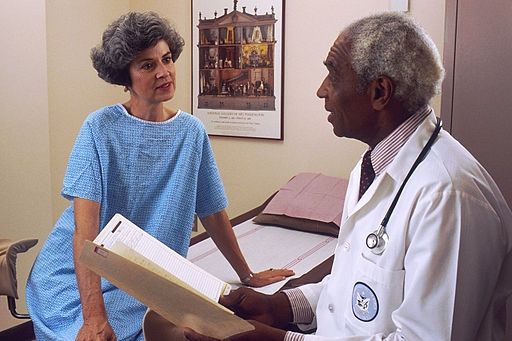
What is a Medical Malpractice Claim?
Bonnie Navin, Medical MalPractice Attorney, Rubenstein Law
It is “medical practice” not “medical perfect.” Most of us make mistakes daily in our jobs, you can only hope the mistake you make doesn’t alter the course of someone’s life or causes a loss of life. It’s important the mistake is recognized so that:
- It doesn’t happen again.
- The right person accepts responsibility for that mistake and apologize.
- Most patients don’t sue if a medical provider has been honest with them at the time of injury.
Usually, mistakes made by physicians and nurses (all medical providers for that matter) are relatively minor and cause no real harm, but others can be devastating and result in serious injury or even death. When a doctor’s error is in such a way that it violates the standard of care owed to their patients, they may be held civilly liable for medical malpractice. In order for negligence to become viable or have all the necessary prongs to warrant a proper legal claim, several prongs must exist.
- DUTY: The doctor, nurse, or other medical professional owed a duty to the patient.
- BREACH: The duty to the patient was breached.
- CAUSATION: The breach of duty caused the patient harm.
The first prong addresses whether or not a physician owes a patient a duty of care. Generally speaking, doctors do not owe a duty of care unless a doctor-patient relationship is established. In other words, the patient must show that they came to the doctor for care or the doctor voluntarily came to the patient’s aid. Once a doctor-patient relationship is established, the physician becomes liable for any injury that should result from any negligent or careless actions during their care. The standard is “what would a reasonable medical provider do, or not do, in the same or similar circumstances.”
In regards to the second prong, a person may not sue for malpractice simply because they are unhappy with the results of their treatment. A patient does not have a case if
- No real damage was caused as a result of their doctor’s negligence.
- This IS a difference between inconvenience and damage.
Examples of real damage include
- Physical pain
- Mental anguish
- Additional medical expenses
- Reduced quality of life
- Reduced earning capacity
Medical malpractice cases in Florida can be costly to pursue so these damages must have occurred for a reasonable length of time to justify bringing an action.
WHAT ARE THE COMMON (OR TOP) CAUSES OF MEDICAL MALPRACTICE
After so many years handling medical malpractice cases, for both sides of the case, identifying common (or top) causes of medical malpractice is quite easy. Medical malpractice cases and injuries often happen as a result of:
Holiday/Shift Change/Night Shift: Ironically most hospital and nursing homes cases occur at shift change when providers are doing their shift hand-off. Why?
Because hand-off is often the time providers spend away from the patient and charting, then they speak to their handoff provider, and then they leave. The new person on shift has to then learn the patient and start their assessments. This often leaves the patient alone for hours while the shift change causes distractions. Holidays often lead to the use of less staff and often staff that is distracted by their own family holiday needs. Night shift often leads to significant injuries because hospitals and facilities less staff at night and many staff members sleep on the job or spend their nights surfing the web or texting friends. This leads to provider distraction and providers losing track of time.
Failing to follow Discharge Instructions: So many cases flow from the patient failing to listen and follow the discharge instructions because the discharge personnel failed to be clear and failed to provide instructions in writing.
These instructions are most important and include:
- Exactly what medications should be taken upon discharge
- When and whom to follow up with by way of providers after discharge
- How to watch for signs and symptoms of relapse or medical problems
Physical Exhaustion: Many medical providers work, not only long shifts, they also “moonlight” at other facilities to help pay their bills. This leads to significant exhaustion.
- Medical providers do their jobs primarily on their feet and at a fast pace. This causes additional exhaustion.
Miscommunication: Sadly cell phones and computers have lead to more miscommunication and less face-to-face interaction. It is imperative that the medical team verbally and in clear and concise writing communicates regarding the patient needs.
- Medication administration errors in a medical facility come from failing to communicate or question a command that simply doesn’t make sense.
- Nurses and other medical staff will often end claim they didn’t go up the chain of command because they didn’t want to upset the doctor or administrator.
WHO CAN BRING A MEDICAL MALPRACTICE CASE IN FLORIDA?
Florida Statutes are unkind to its citizens who have been affected by medical malpractice. In Florida, you must be a victim yourself, the spouse of a victim or the parent of a child victim 25-years of age or younger to file a malpractice claim.
If a person dies from medical malpractice it is called a wrongful death and ONLY a legal surviving spouse or child 25 years or younger may bring a claim. That leaves a vast majority of adults who have died as a result of malpractice with no legal recourse.
HOW SOON MUST I BRING A MEDICAL MALPRACTICE CASE?
This is an interesting question from a personal and legal standpoint. In Florida, you have two years from when you knew or should have known with reasonable due diligence that malpractice may have occurred but no later than four years from the date of the incident. In death cases, you have two years from the date of death to file a wrongful death claim.
Many people feel odd or weird calling an attorney when their loved one is still in a hospital or has just passed away. Don’t wait. Waiting to contact a lawyer in these scenarios can hinder a case because most medical providers see hundreds of patients and as time goes on memories fade and pertinent evidence is lost.
In cases where someone has passed away, often times an autopsy is necessary to prove the cause of death, but most medical examiners will not accept hospital patients for autopsy unless the facts and findings are suspicious of abuse and/or neglect or foul play. This leaves families in the midst of grieving to find a private provider to conduct an expensive autopsy, often at a cost in excess of $5,000.
BUT WHAT IF MY DOCTOR DOESN’T CARRY MEDICAL MALPRACTICE INSURANCE?
Certainly bringing cases against medical providers can be difficult when they fail to have insurance, however, that is something for the legal team to analyze because often times the provider does have insurance or assets to attach. In Florida, the provider must have financial responsibility of at least $250,000.00 in the event of a verdict. Don’t let the provider’s lack of insurance keep you from calling.




